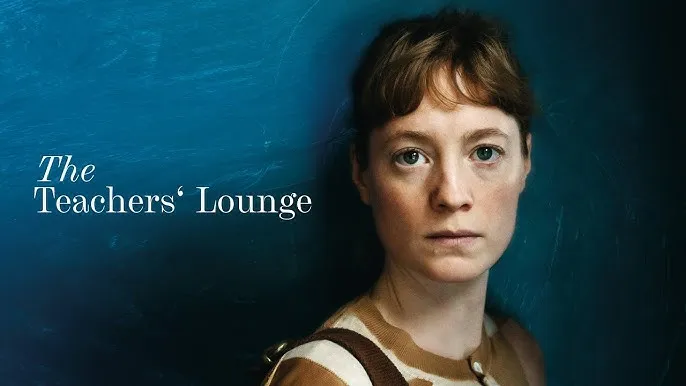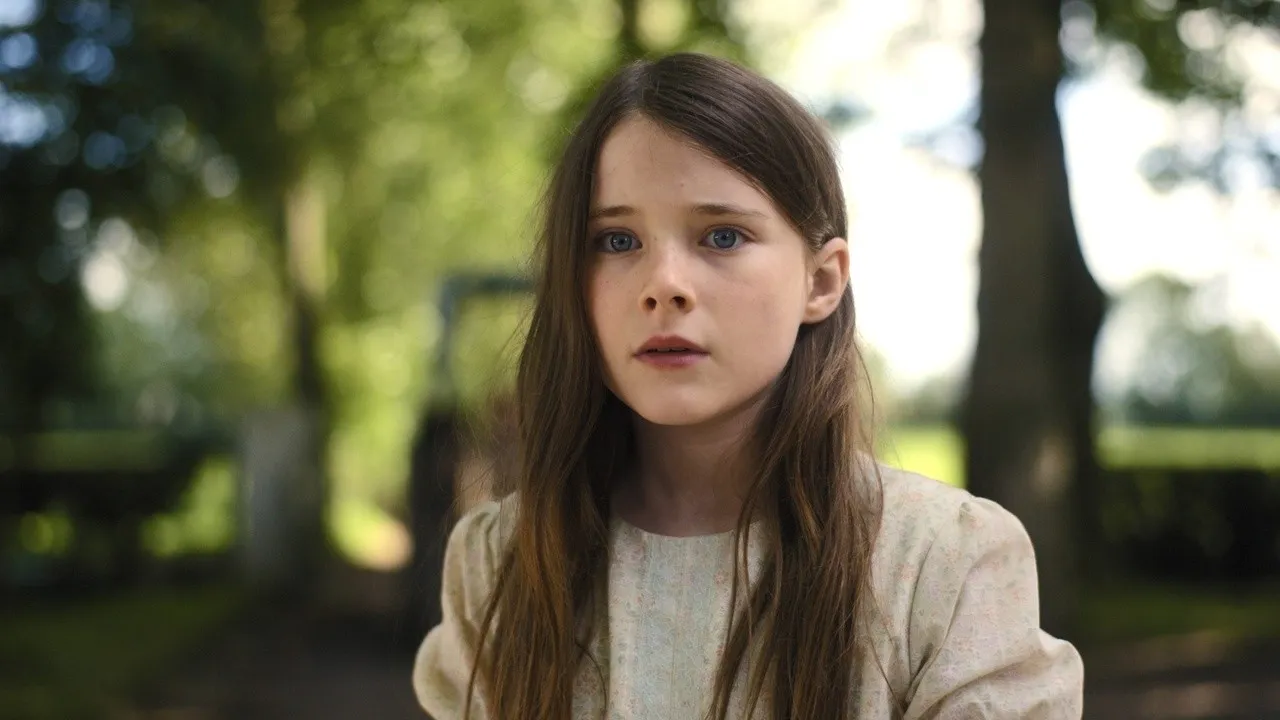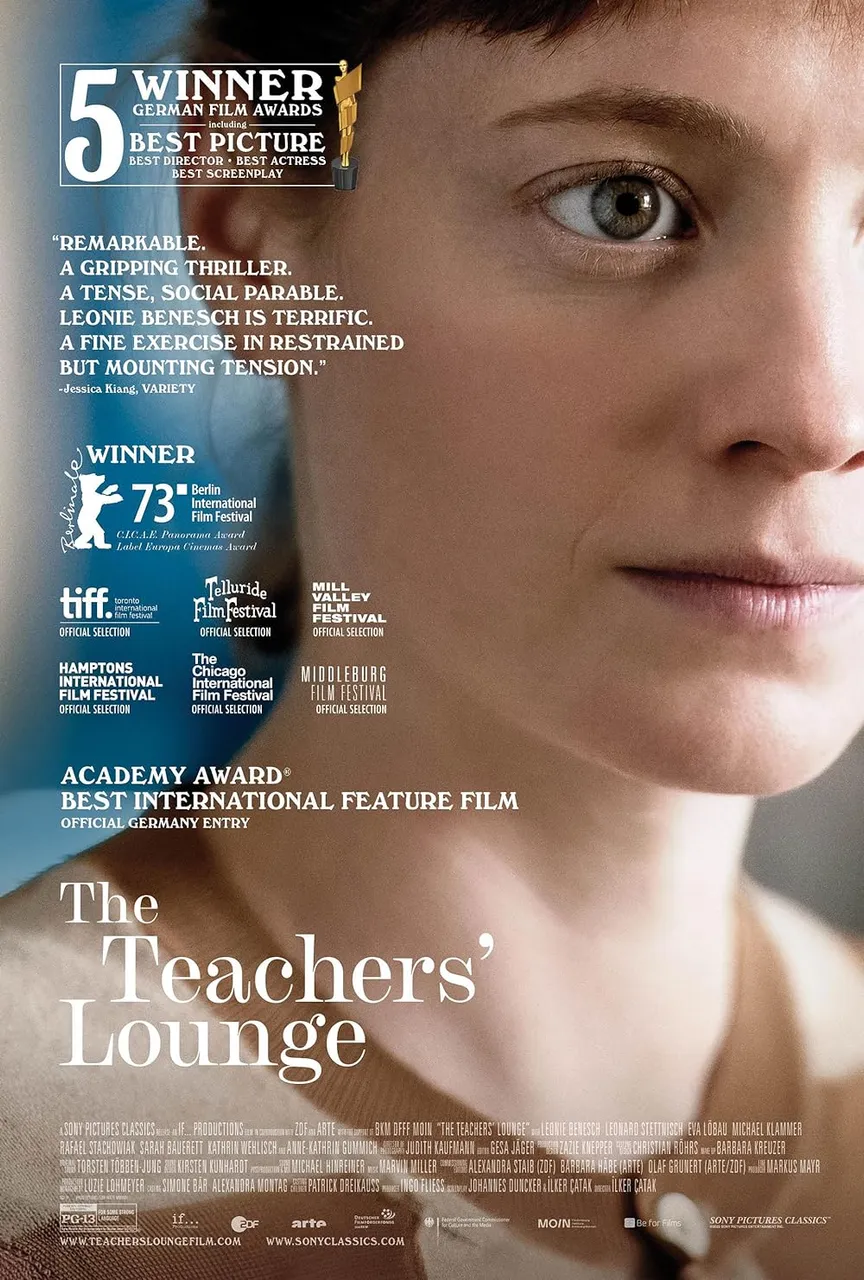
Nominada a Mejor Película Internacional en los próximos premios Oscar
Now yes: since the Oscars are just a few weeks away and I still have to see many of the nominated films, it's time to start reviewing that list. It's true that Maestro and The Snow Society are on Netflix and that Spider-Man is on HBO, all a little more accessible, but since I like foreign cinema and Best International Film is one of my favorite categories, I decided to start this countdown by watching one of the nominees for that award.
Ahora sí: como faltan pocas semanas para los premios Oscar y aún me falta ver muchas de las películas nominadas, es momento de ponerme a revisar esa lista. Es verdad que Maestro y La sociedad de la nieve están en Netflix y que la de Spider-Man está en HBO, todas un poco más accesibles, pero como a mí me gusta el cine de afuera y Mejor Película Internacional es una de mis categorías favoritas, decidí comenzar esta cuenta atrás viendo una de las nominadas a ese premio.
Das Lehrerzimmeraka (The Teachers’ Lounge) is a German film co-written and directed by Ilker Çatak and is about what we could call a school drama. The story focuses on teacher Carla Nowak (greatly played by Leonie Benesch), born in Germany to Polish parents, who has just arrived at a German high school to teach math and gymnastics classes (an unusual combination, in my experience). At the beginning we see her talking with her students, giving classes, talking with her colleagues, and everything seems to be going well. Ms. Nowak projects a confident, warm, correct personality, and automatically generates empathy in us. As the film progresses and we see her interact with other people and realize some facts, we also discover that Carla is idealistic, which - in my case - makes me respect her even more: she has firm convictions and defends them. The problem is that, at first, we don't know where her idealism is going to take her and when things get out of control we can't help but question whether it's worth doing it and whether conviction is sometimes confused with stubbornness. I must highlight that the way the script progresses is wonderful because the tension increases little by little but steadily and - like Carla - we find ourselves involved in a whirlwind of circumstances, secrets, rumors, values and questions that turn her life upside down.
Das Lehrerzimmeraka (The Teachers’ Lounge) es una película alemana co escrita y dirigida por Ilker Çatak y se trata de lo que podríamos llamar un drama escolar. La historia se centra en la profesora Carla Nowak (interpretada de gran manera por Leonie Benesch), nacida en Alemania y de padres polacos, quien acaba de llegar a una secundaria alemana a dar clases de matemáticas y de gimnasia (inusual combinación, en mi experiencia). Al inicio la vemos conversar con sus alumnos, dar clases, hablar con sus colegas, y todo parece ir bien. La Señorita Nowak proyecta una personalidad segura, cálida, correcta, y automáticamente nos genera empatía. Conforme avanza la cinta y la vemos interactuar con otras personas y darse cuenta de algunos hechos, también descubrimos que Carla es idealista, lo que - en mi caso - me hace respetarla aún más: tiene convicciones firmes y las defiende. El problema es que, al principio, no sabemos a dónde la va a llevar su idealismo y cuando las cosas se salen de control no podemos evitar cuestionarnos si vale la pena hacerlo y si la convicción a veces no suele confundirse con testarudez. Debo destacar que la forma en que avanza el guión es maravillosa porque la tensión va aumentando poco a poco pero de forma sostenida y - como Carla - nos vemos envueltos en un torbellino de circunstancias, secretos, rumores, valores y cuestionamientos que ponen de cabeza su mundo.

It all starts with a normal, everyday event in many schools: robberies have occurred. School materials have disappeared from classrooms and some students are suspected. There are visits to classrooms and reviews of personal items. And yes, there is a façade of consent, because students are told that they have the right to refuse, but pressure from authority pushes them not to do so. In other words, these investigations are nothing more than raids.
Todo inicia con un hecho normal, cotidiano en muchas escuelas: han ocurrido robos. Materiales escolares han desaparecido de las aulas y se sospecha de algunos alumnos. Hay visitas a las aulas y revisiones de elementos personales. Y sí, hay una fachada de consentimiento, porque se les dice a los alumnos que están en derecho de negarse, pero la presión de la autoridad los empuja a no hacerlo. En otras palabras, estas investigaciones no son más que redadas.
And perhaps these things do not surprise us adults or bother us. At least to those of my generation. We grew up with the concept that if there are robberies we must find a culprit and that "he who owes nothing, fears nothing" so we don't refuse to prove our innocence even if we have to do so by giving evidence to the contrary of an unfounded accusation and letting another invades our privacy. Others give it less importance because the theft involves a few pencils and things like that, but the truth is that at the school in the film they take it very, very seriously, not only the teachers but also the students and their parents. There has been a lot of talk on social networks about the fact that we live in a more sensitive time than in previous decades, that we have to be very careful about what we say and what we do, that it seems that people get offended more easily and it is in this climate of sensitivity in which you have to be extremely cautious, in which a suspicion weighs as much as an accusation, in which one cannot back out, in which the damage can be irreparable and in which the truth behind something matters as much or less than the appearances of that something. Idealistic as anyone, convinced that the suspicions about one of her students were unfounded, Carla decides to set a trap. And the trap is sprung. And someone falls into it. And from there, everything goes to hell.
Y quizás a los adultos no nos sorprendan estas cosas ni nos incomoden. Al menos a los de mi generación. Crecimos con el concepto de que si hay robos hay que buscar un culpable y que "quien nada debe, nada teme" entonces no nos negamos a demostrar nuestra inocencia aunque haya que hacerlo dando pruebas en contrario de una acusación sin fundamentos y dejando que otro invada nuestra intimidad. Otros le dan menos importancia porque el robo es de unos cuantos lápices y cosas así, pero la verdad es que en la escuela de la película se lo toman muy, muy en serio, no sólo los profesores sino también los alumnos y sus padres. Mucho se ha hablado en redes de que vivimos en una epóca más sensible que las décadas anteriores, que hay que cuidar mucho lo que se dice y lo que se hace, que pareciera que la gente se ofende más fácil y es en ese clima de sensibilidad en el que hay que ser en extremo cautelosos, en el que una sospecha pesa tanto como una acusación, en la que uno no puede desdecirse, en las que los daños pueden ser irreparables y en la que la verdad detrás de algo importa tanto o menos que las apariencias de ese algo. Idealista como nadie, convencida de que las sospechas sobre uno de sus alumnos fueron infundadas, Carla decide tender una trampa. Y la trampa es accionada. Y alguie cae en ella. Y a partir de allí, todo se va al carajo.

Although it is a school drama, it's not the experiment that we saw in Die Welle in 2008, but that doesn't mean that the dramatic and emotional charge of The Tecaher's Lounge is less. High school is a representation of the world, of society, and the things that happen give rise to reflection on issues such as privacy, freedom of expression, the school system, the search for culprits, the responsibility of our actions, stubbornness in always doing the right thing, morality, judgment, defamation, discipline and many others. The script takes Carla to pressure and tension of unsuspected extremes at the beginning of the story, but I enjoyed seeing her almost always rise to the occasion and she transmitted to me a teaching vocation and a commitment to her students and to her ideals that I don't think is very common these days. Mediating between angry and offended parents, colleagues uncomfortable with her, violent students and a school system that questions despite being part of it, Carla is an example of temperance and idealism. The truth is that I would have liked to have a teacher like Miss Nowak, have any of you seen this movie? I read you in the comments.
Si bien es un drama escolar, no es el experimento que vimos en Die Welle en 2008, pero no por eso la carga dramática y emotiva de The Tecaher's Lounge es menor. La secundaria es una representación del mundo, de la sociedad, y las cosas que ocurren dan pie a reflexionar sobre temas como la privacidad, la libertad de expresión, el sistema escolar, la búsqueda de culpables, la responsabilidad de nuestros actos, la obstinación en hacer siempre lo correcto, la moralidad, los juicios, la difamación, la disciplina y muchos otros. El guión lleva a Carla a una presión y tensión de extremos insospechados al inicio de la historia, pero disfruté verla estar casi siempre a la altura y me transmitió una vocación docente y un compromiso con sus alumnos y con sus ideales que no creo que sea muy común en estos tiempos. Mediando entre padres furiosos y ofendidos, colegas incómodos con ella, estudiantes violentos y un sistema escolar que cuestiona a pesar de ser parte él, Carla es un ejemplo de templanza e idealismo. La verdad es que me habría gustado tener una profesora como la Señorita Nowak, ¿alguno de ustedes ha visto esta película? Los leo en los comentarios.
Reviewed by | Reseñado por @cristiancaicedo
Other posts that may interest you | Otros posts que pueden interesarte:
  |
|---|


